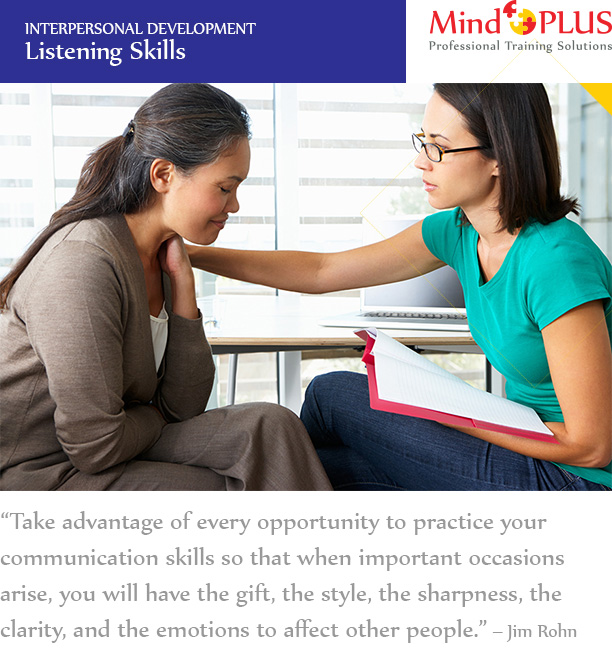
Listening skills is perhaps one of the most important skills used when communicating with others. Imagine what happens when people discover that you are not listening to them or don’t care much about them. Naturally, they are quick to distance themselves from you. Everyone loves to be listened to, but unfortunately we never seem to be doing enough listening. People are deprived of listening and those who can master this skill and establish themselves as good listeners stand to gain enormously as they can make long lasting friendships with others. By developing a reputation of being a good listener an individual can transform his life in many dimensions.
This course aims to help delegates master the art of listening in professional and personal settings. Listening, like all skills, can be mastered through guidance, practice and persistence. This course is designed around numerous examples as this is the most effective way to learn. The course is full of examples that clearly demonstrate what each listening guideline suggests. In particular, several examples of bad listening are provided so delegates can see clearly which method works and which doesn’t.
All sessions include exercises to allow delegates practice the listening skills discussed in each session. Various areas are explored such as listener personalities, types of listening, bad listening habits, use of toxic words, questioning skills to encourage constructive conversations and many others.
The training materials come complete with all the necessary content such as workbook, slides, course notes, exercises, etc. which allow trainers to quickly run the course based on their specific demand.
In this highly practical course delegates will learn:
Why Listening is Important
- Why people don’t listen?
- How miscommunication happens?
- What is the secret to good communication skills?
Active Listening
- What are different listening styles?
- What listening styles are more effective?
- What is Active Listening?
- What is Empathic Listening?
- How can you formulate your conversation to establish rapport and get immediate results?
Listening Spectrum
- How people listen and how can you use a systematic method to improve your own style?
- What is the ideal personality while listening?
Bad Listening
- What not to say in conversations?
- How to use example conversations to improve your listening
- How to improve your listening using a series of fundamental and proven guidelines
Asking Effective Questions
- What are the most effective questions to ask while listening?
- What types of questions should you avoid?
Critical Responses
- How to avoid using toxic words in conversations that can immediately change the nature of your interaction
- What toxic words should you avoid?
Difficult Listeners
- What types of difficult listeners exit?
- What is the behaviour of each type?
- What are the best strategies to handle each type?
Audience: Anyone
Prerequisites: None
Course Duration: 1 Day
Course Level: Beginners & Intermediate


